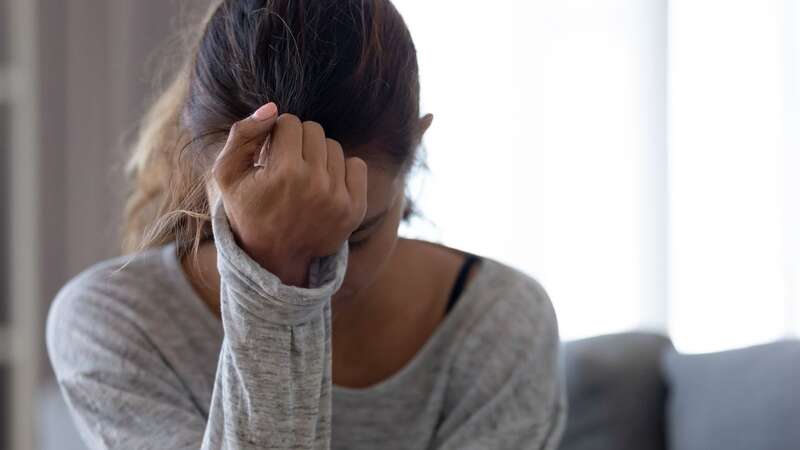
More than four in 10 adults have gone at least three days without talking to another person face-to-face, according to research.
A study of 2,000 adults discovered 40 per cent have also experienced the feeling of being lonely despite constantly being surrounded by other people. Those aged 18-24 were found to suffer the most (60 per cent), with 38 per cent of women feeling this way compared to just 30 per cent of men.
It also emerged 28 per cent have felt lonely while at a social event, while a quarter of worker have felt alone at their job. Despite this, 43 per cent believe bonding with someone through a shared experience would make them feel less alone. The study was commissioned by dance fitness brand, Zumba, which has documented two people who have experienced loneliness as they took part in a class together for the first time.
A spokesperson said: "Loneliness can affect anybody, and our research has revealed that it is not exclusively linked with being physically alone. Despite having plenty of social contact, many people still experience feelings of loneliness, probably as a result of lacking real human connection. This connection can come from a shared experience, such as a group fitness class.
"It is no surprise that many friendships are formed in classes like ours, but what is less obvious and perhaps more powerful, is the positive effect of simply sharing the class experience for an hour with others whom you may not have formally met or spoken to."
 New Year resolutions you should make for 2023 based on your star sign
New Year resolutions you should make for 2023 based on your star sign
The study also found only 14 per cent 'often' talk to others about their feelings of loneliness, as 62 per cent believe there is a stigma around it. But 35 per cent find it difficult to talk to or interact with new people, despite a fifth claiming to be sociable. And 44 per cent believe that even with lots of friends, it is still possible to experience a feeling of loneliness.
Confidence, anxiety levels and sleep are the top things those polled, via http://OnePoll.com , feel are negatively impacted from being lonely. While 42 per cent said their sleep worsens when they feel lonely, and 29 per cent see themselves as less attractive with diet being affected for three in 10.
And 32 per cent would benefit from being part of a community or group with a third claiming a personal accomplishment would help reduce their feelings of loneliness. Psychologist Anjula Mutanda, who has partnered with Zumba to help combat loneliness, said: "Human beings are by our very nature social beings and psychological research asserts that we need to belong, to relate to each other and feel connected to other people - this is how we survive and thrive.
"Therefore, feeling disconnected or cut-off from quality relationships with others, can negatively impact our mental and physical health something which has been highlighted in the research. Experiencing loneliness can come in different forms and is uniquely felt by each of us.
"Which is why some people can feel disconnected in a crowd, or disconnected within their relationships - while others may experience feelings of loneliness when they move away from home, start a new job, or experience a bereavement. It can also affect your confidence and leave you feeling too afraid or too embarrassed to tell someone how you actually feel, which could potentially lead to a downward spiral of "silent suffering" and can really take a toll on your wellbeing.
"The good news is that there are steps you can start to take to help you combat loneliness, such as taking part in physical exercise, and reach out to others for connection and support."
ANJULA'S ADVICE TO HELP OVERCOME LONELINESS
- Develop an awareness of any unhelpful habits that you may have formed whenever you have felt lonely. For example, jot down when you notice a tendency to withdraw from others and isolate yourself - when all you actually want to do is to reach out.
- When you sense a downward emotional spiral creeping up, do something different that will help you to shift how you feel, instead of leaning into it. It could be as simple as texting a friend or going for a walk - engaging in one small step could help you to take control and start thinking and feeling more positively.
- Disrupt familiar and well-practiced negative thoughts you may have developed over time. For example, wanting to join a dance class but preventing yourself from doing so for fear that that other people may judge you negatively. Those pesky negative automatic thoughts (NATS) can really prevent you from reconnecting with things you love.
- Engage in new activities as this can help you create a more positive mindset and form new habits. Start small by doing things such as volunteering to do the coffee run at work or actively engaging with colleagues. Or in your free time, why not look for local events that you enjoy, like signing up for a fitness session or joining a film club.
- Sometimes, you can feel so stuck or overwhelmed that the thought of trying anything new feels too scary and that’s OK. If you are struggling, then now may be the time to get some professional support to help you get back on track. Make an appointment to talk to your GP who can help you to find the best resources for you.